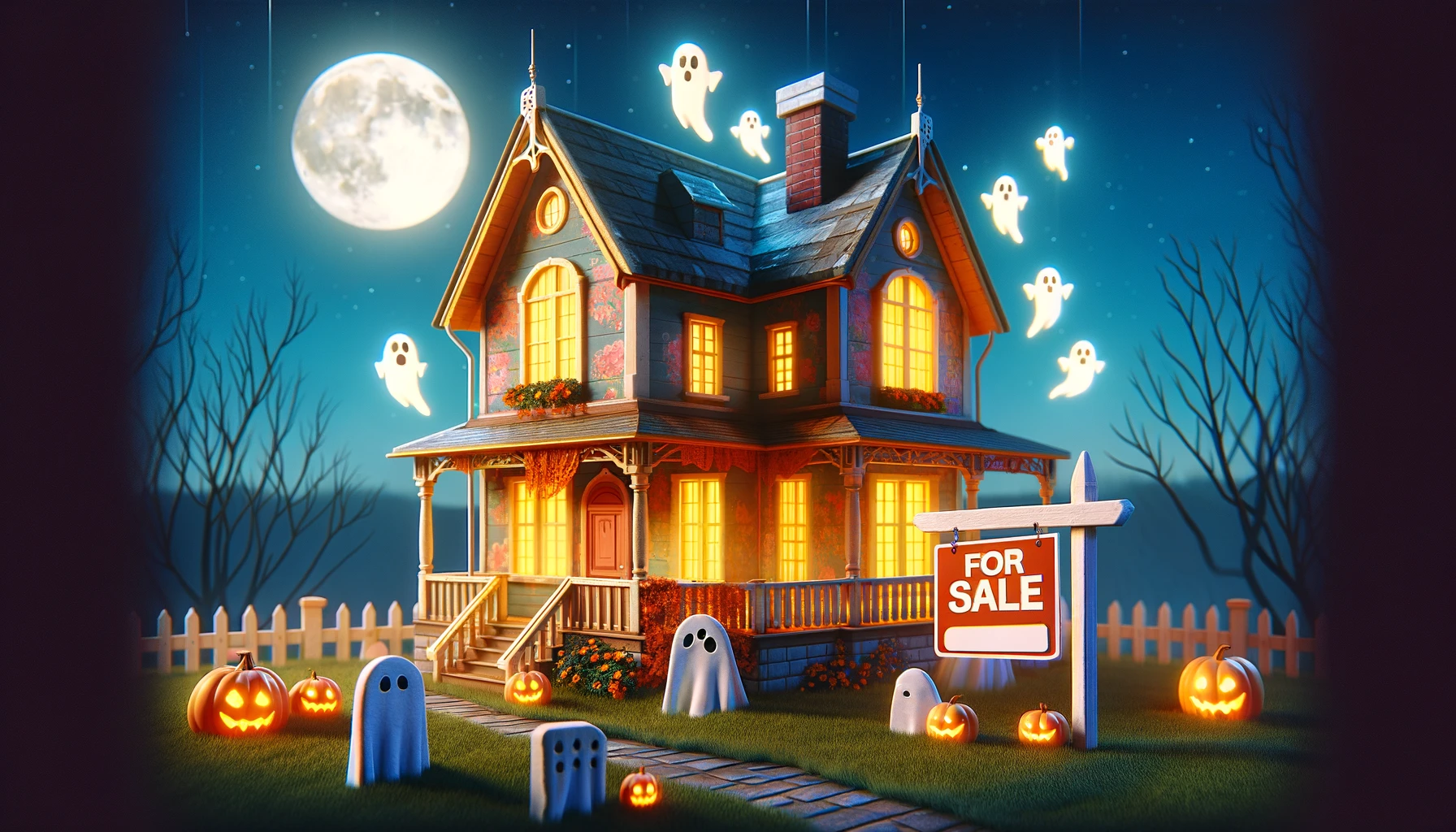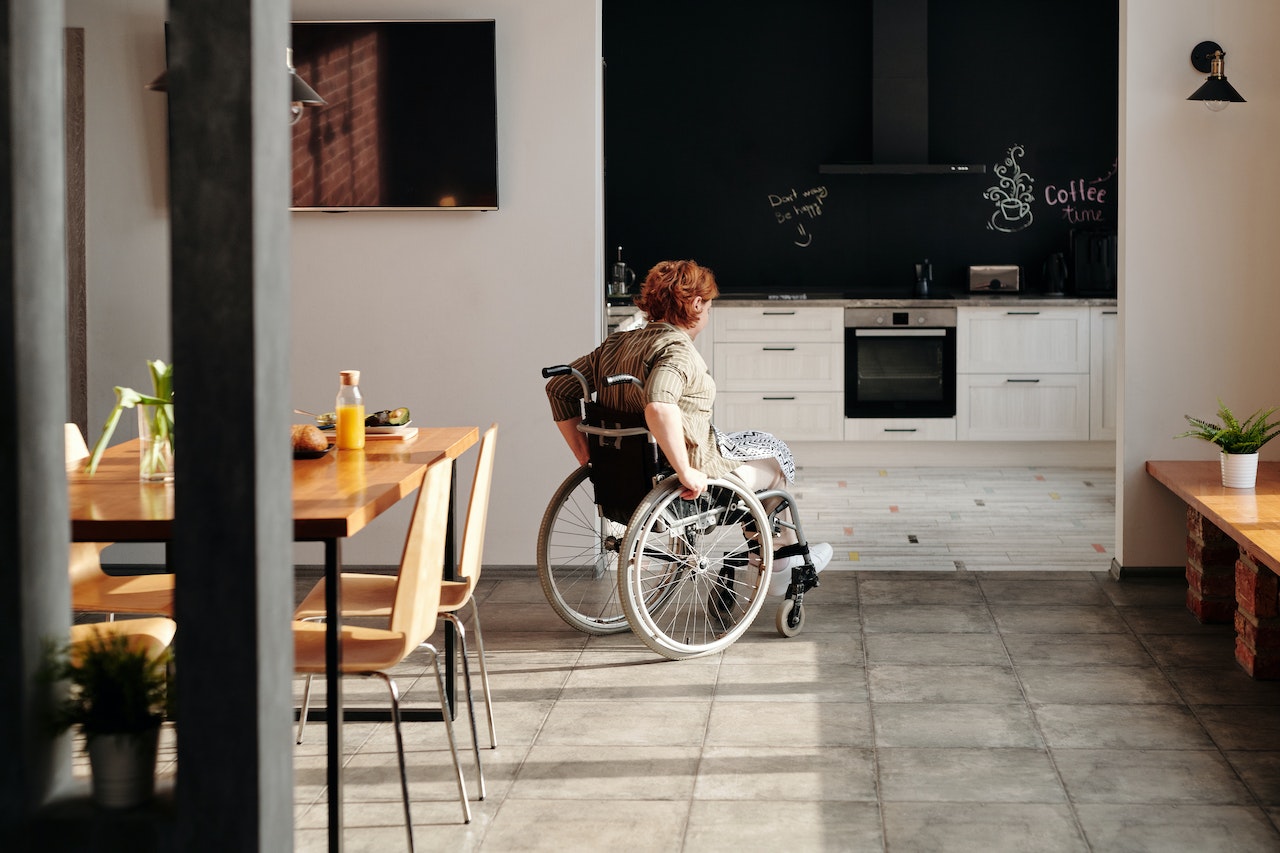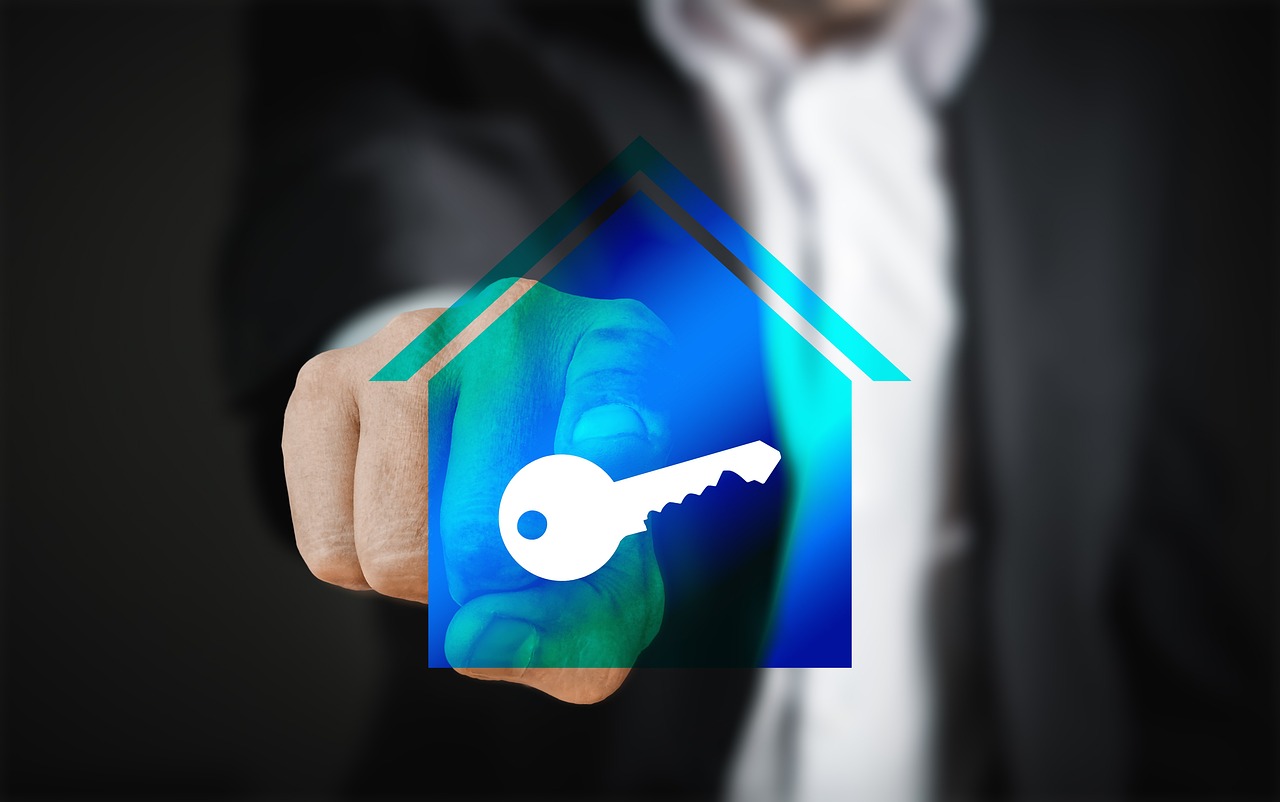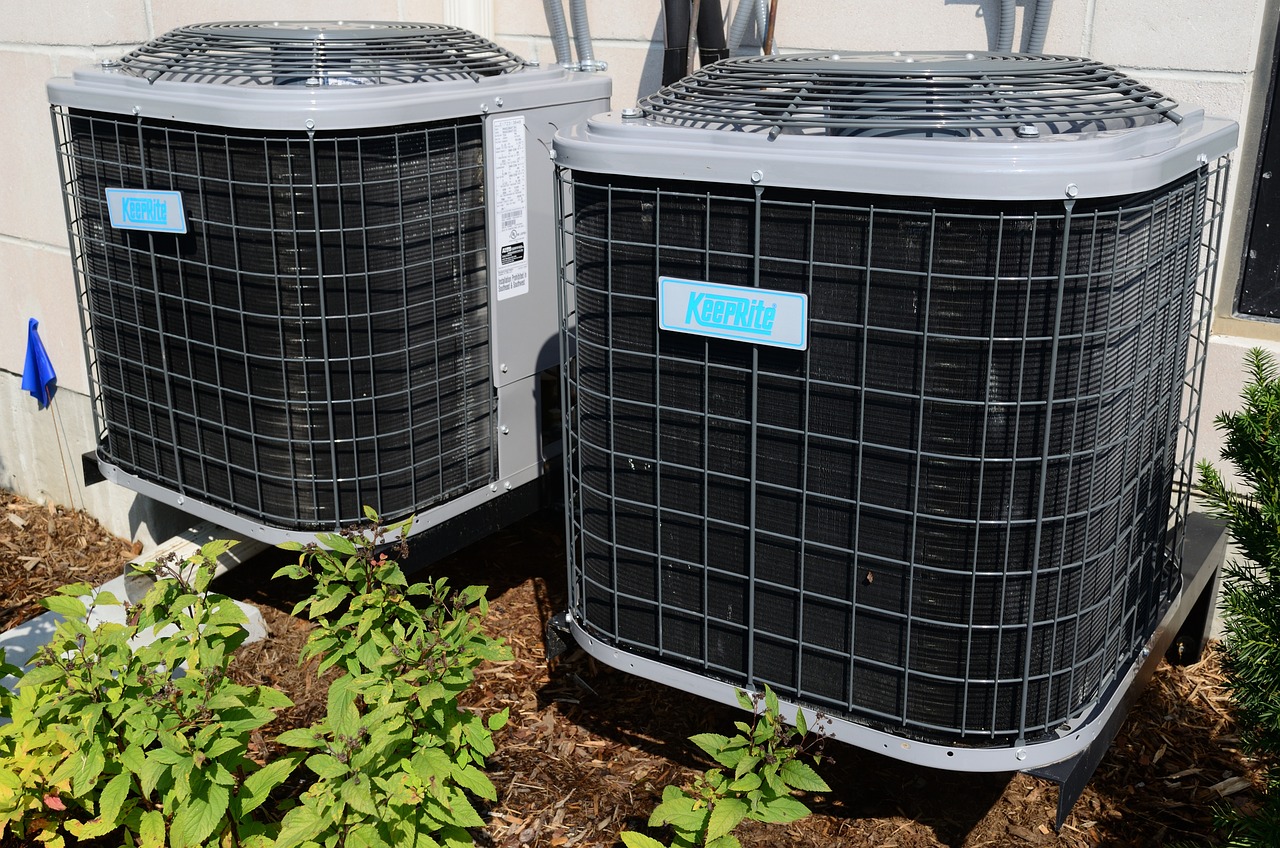Welcome to the unique challenge of selling a haunted house, where the phrase ‘ghosting a buyer’ takes on a whole new meaning! If you thought selling a regular house was tough, try doing it with an extra ‘spiritual’ resident. But don’t worry, this guide will help you turn those ghostly liabilities into paranormal profits.
Understanding Paranormal Phenomena
Before diving into the spirited adventure of selling a haunted house, let’s take a moment to understand the ethereal occupants that might be rattling your rafters. Knowing what you’re dealing with is the first step in transforming a petrifying problem into a selling point.
Haunted houses are famous for their variety of ghostly activities. The classic signs of a haunted house can include:
- Mysterious Sounds: Unexplained noises like footsteps, knocks, or whispers. These auditory anomalies are often the first sign that you’re not alone.
- Objects Moving: Items that shift on their own, doors that close by themselves, or lights that flicker can indicate a playful poltergeist.
- Cold Spots: Sudden, inexplicable drops in temperature in specific areas of the house, often attributed to the presence of a ghost.
- Visual Apparitions: The rarest and most unnerving, these include fleeting shadows or full-bodied apparitions of former residents (or visitors).
Why the Fear?
Fear of the unknown is a fundamental human instinct, and ghosts represent one of the greatest unknowns. Many people associate haunted houses with negative events or believe that a ghost must be a troubled soul. The fear is often fueled by popular culture and ghost stories, which tend to focus on the spookier side of the supernatural.
Cleansing Your House
For those looking to clear the air (literally and figuratively), there are several ways to cleanse a house:
- Professional Help: Bringing in a medium or a spiritual cleanser can help communicate with the spirits and encourage them to move on.
- DIY Methods: Sage smudging, where burning sage is used to purify and bless the house, is a popular method. Other techniques include using salt, crystals, or even sound (like ringing a bell in every room).
- Positive Energy: Sometimes, simply changing the energy of the house – through renovation, redecoration, or just bringing in more positivity and light – can make a difference.
While some people seek to cleanse their homes of these spectral guests, others embrace the mystery and history that come with them. Understanding and respecting these ethereal entities can turn a haunted house from a real estate nightmare into a dream listing.
Selling a Haunted House
1. Embrace the Spooks
First things first, own it! Your house is haunted, and that’s okay. Some people collect stamps; your house collects spirits. This isn’t a bug; it’s a feature. Market it as an ‘eternally occupied’ residence. Remember, it’s all about perspective – a ghost is just a roommate who doesn’t eat your food or take up couch space.
2. Full Disclosure (or How to Avoid Angry Mobs Later)
You might think, “Hey, let’s just not mention the friendly poltergeist in the attic,” but honesty is the best policy. Plus, nothing ruins a sale like a surprise possession during the home inspection. Be upfront about your home’s ‘unique’ features. It’s not just legally sound; it’s also a great conversation starter!
3. Staging Your Haunted House (Cobwebs Optional)
Staging a haunted house is crucial. You want potential buyers to focus on the charming aspects of the house, not the eerie cold spots in the hallway. Keep the lighting bright – ghosts are notoriously camera-shy, so this might keep them out of the real estate photos. And maybe skip the creaky floorboard fix – it adds character (and a free intruder alert system).
4. Ghost-Proofing for Open Houses
Nothing scares away a potential buyer like a supernatural photobomb. Consider bringing in a medium for a pre-open house cleanse. Think of it as setting the stage for a great performance. Plus, it’s a great way to ensure your open house doesn’t turn into a séance.
5. Price it Right (Because Ghosts Don’t Pay Rent)
When pricing your haunted house, remember that ghosts don’t contribute to the mortgage. Price competitively, considering the ‘extra guests’. A haunted house can be a hard sell, but with the right price tag, you’ll find someone dying to buy it.
6. The Art of Ghostly Negotiations
Negotiating the sale of a haunted house is an art form. When potential buyers start getting cold feet (and it’s not just from the ghost in the basement), remember to highlight the positives. Your house offers an ‘immersive historical experience’ – who needs virtual reality when you’ve got actual spirits from the 1800s? And if the buyer is concerned about the paranormal activity, throw in a year’s supply of sage as a closing gift. It’s the haunted house equivalent of leaving the washer and dryer.
7. Handling the Haunted House Inspections
Inspections can be tricky when your house has a reputation for being haunted. Ensure your inspector isn’t easily spooked and remind them that the sounds in the walls are just “historic whispers.” If the inspector asks why the temperature drops in the dining room, just casually mention it’s the house’s built-in climate control, courtesy of your resident specter.
8. Marketing to the Right Crowd
Target the right audience. There’s a niche market for haunted houses – ghost hunters, horror enthusiasts, or maybe just someone looking for a good story to tell at dinner parties. Use language in your listing that appeals to these groups. Phrases like “timeless charm with occasional supernatural occurrences” can be a real selling point.
9. Creating a Spooky but Welcoming Atmosphere
During viewings, set the mood. You don’t want it too spooky – no need for flickering lights or mysterious whispers on cue – but a slightly eerie ambiance can work wonders. Think subtle: maybe an old portrait with eyes that seem to follow you, or a strategically placed antique rocking chair that rocks on its own. It’s about finding that sweet spot between charmingly haunted and ‘run for your life.’
10. Closing the Deal (And the Portal to the Other Side)
When you finally find a buyer brave enough to take the plunge, make sure the closing process is as smooth as possible. Offer reassurance about the house’s quirks and history. Maybe include a manual on ‘Living with Your Ghosts’ as a parting gift. It’s important to leave them feeling excited about their new home, not like they’ve just signed up for a lifetime of horror movies.
In the end, embrace the unusual, find the right buyer, and maintain a sense of humor throughout the process. After all, selling a haunted house isn’t just a transaction; it’s an adventure into the unknown (real estate market, that is!).
Additional Pro Tips for Selling Your Haunted House
- Build a Spooky Social Media Presence
Harness the power of social media. Create an Instagram account for your haunted house, featuring ‘daily spooks’ or ‘ghostly encounters.’ A strong online presence can pique the interest of potential buyers who are thrilled by the idea of living in a house with its own hashtag.
- Host a Themed Open House
Why not host a themed open house? Think ‘Halloween in July’ or ‘Ghostly Gala.’ It’s an opportunity for buyers to experience the house’s unique atmosphere firsthand. Plus, serving themed snacks like ‘ectoplasmic eclairs’ or ‘phantom punch’ can lighten the mood.
- Get the Ghosts on Your Side
If possible, try to get your spectral inhabitants involved in the selling process. Negotiate with them to behave during viewings or perhaps even perform on cue. A friendly ghost can be a great selling point, especially if they’re more Casper than Poltergeist.
- Offer a ‘Trial Night’
For the truly brave souls, offer a trial night in the house. It’s one thing to visit a haunted house; it’s another to sleep in one. This could either seal the deal or send them running, but it definitely adds to the house’s mystique.
- Provide a Historical Background
People love a story, especially when it comes to haunted houses. Provide a detailed historical background of the house and its ghostly residents. A rich history can make the house more intriguing and less intimidating.
- Highlight the Un-Haunted Features
While the ghosts might be the main selling point, don’t forget to highlight the less spooky features of the house. Is the kitchen newly renovated? Are the gardens well-kept? Remember, not everyone is buying for the ghosts – some might just love the house itself.
- Offer Ghost-Related Perks
Consider offering unique perks. A session with a renowned medium, a ghost-proofing consultation, or even a custom ghost-themed welcome mat can add a special touch to the sale.
- Create a Ghostly FAQ Document
Prepare a Frequently Asked Questions document addressing all things ghost-related. This can include answers to questions like “What to do if you see a ghost?” or “How to communicate with your spectral roommates?” It’s both helpful and a fun read!
- Leverage Local Legends
If your house is part of local ghost stories or legends, use that to your advantage. Being featured on ghost tours or in local folklore books can add a layer of celebrity status to your property.
- Remember, It’s Not for Everyone
Finally, understand that a haunted house is not everyone’s cup of tea (or potion). Be patient and wait for the right buyer who appreciates the unique charm and challenges of living with ghosts.
Frequently Asked Questions about Selling a Haunted House
Emphasize the ghosts’ charming qualities. Maybe they help find lost keys or keep the cats entertained at night. Remember, it’s all about marketing your spectral friends as helpful, not horrifying.
Keep a ‘Ghostly Occurrences Disclaimer’ form handy. If things go bump during a viewing, smile and say, “See? Included at no extra charge!” Also, always have a backup plan, like highlighting the non-haunted, fantastic features of the house.
Negotiate! Try communicating through a séance or a medium. Offer them a deal, like promising to find buyers who will respect their presence. Ghosts have feelings too, and a little understanding goes a long way.
Yes! Disclose everything. The last thing you want is a lawsuit from a buyer who wasn’t expecting a ghostly roommate. Check local laws about disclosing paranormal activity – better safe than haunted.
Pricing can be tricky. Consider the house’s age, condition, and the level of paranormal activity. Sometimes, a ghostly reputation can increase value. Other times, you may need to adjust the price for the ‘extra guests.’
Use phrases like ‘unique character’ and ‘historical charm.’ Target niche markets who might be interested in the supernatural aspect. Remember, you’re not just selling a house; you’re selling an experience.
Keep it subtle. A few gothic touches can enhance the mood, but don’t turn it into a haunted house attraction. You want to sell a home, not a theme park ride.
There’s a buyer for every house. If your house is on the extreme end of haunted, it might take longer to find the right buyer, but they’re out there. Maybe someone who wants their own paranormal research site!
Offer resources on cohabiting peacefully with spirits. Share stories of your own experiences that highlight the positive aspects of living with ghosts. A little reassurance can go a long way.
Absolutely! A haunted house is a conversation starter and can be a piece of living history. Plus, for those interested in the supernatural, it’s an endless adventure. And let’s not forget – ghosts make for low-maintenance housemates.



